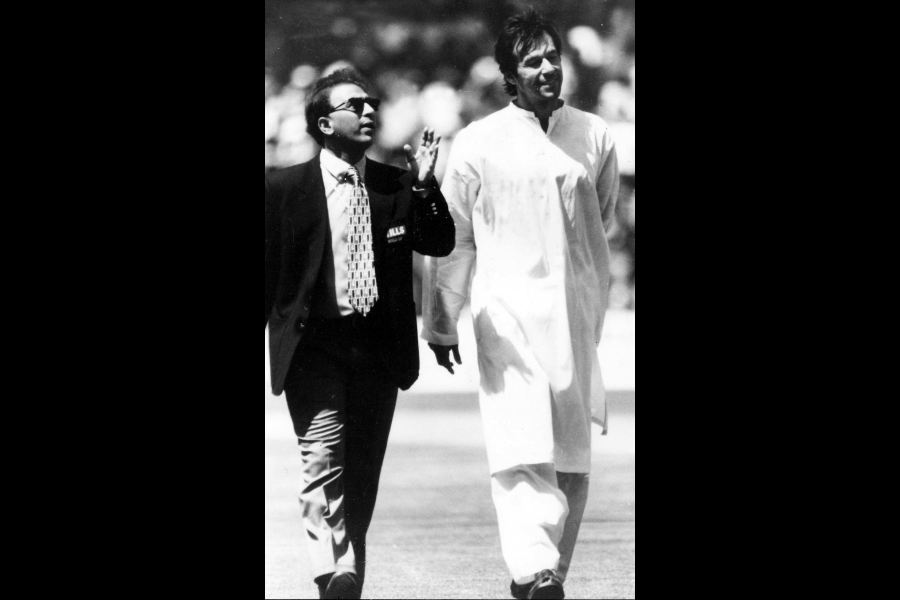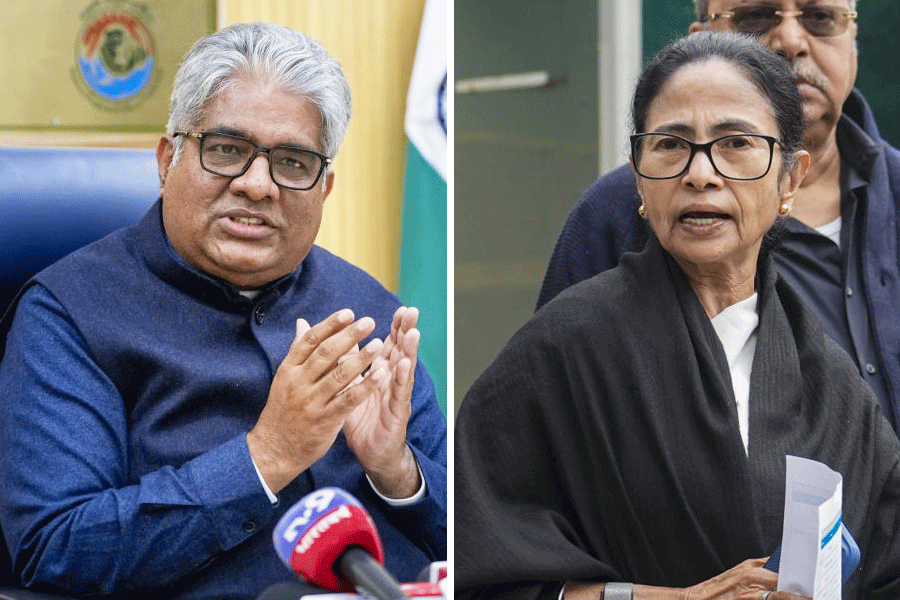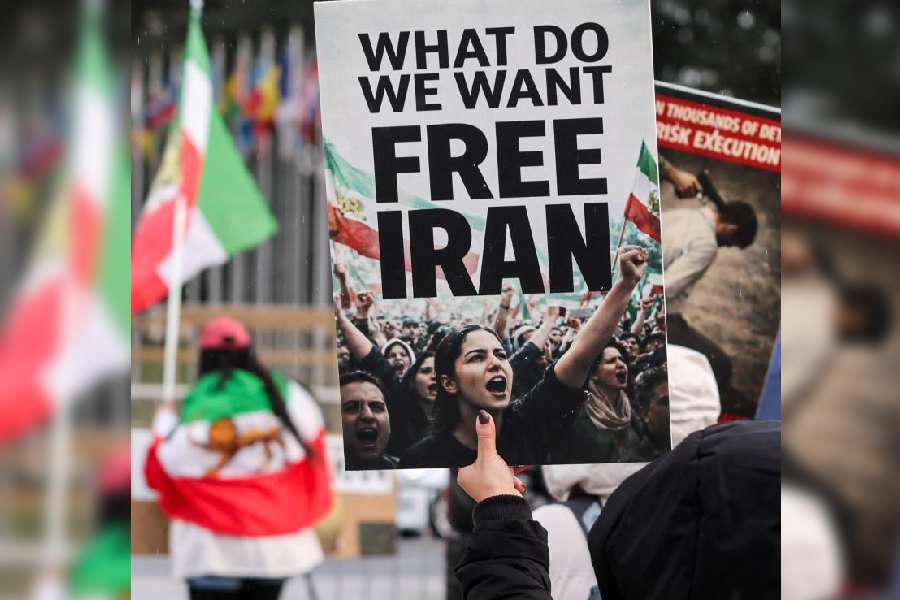In his more than 65-year film career, Kamal Haasan has done it all: acting, direction, scriptwriting, choreography and even makeup. Anything left to do? Many things. But, he declares (without a hint of false modesty), that he stopped learning at some point. Oh! Why? “Avarice,” he replies.
Greed for more money got in the way, he says. “I like money. I want it to come to me,” Haasan told PTI in an interview this week.
In one of his most candid conversations about life, films, AI, philosophy, legacy and his frailties, Haasan acknowledges the inherent contradictions of a movie star's life: the joy of reaching a “larger demographic" and the regret of not receiving real applause or honest criticism.
He should know, having been in the business almost all his life. He was just three years old when he got a role in a Tamil movie. Since then, barring a few hiatuses, the 70-year-old has been constantly reinventing himself to stay in step with the changing times.
After that extraordinary career and achieving all this, does he feel like patting himself on the back and saying 'well done Kamal'? Haasan's reply makes it clear that he sees success as ephemeral.
"My favourite writer Jayakanthan says 'Once you climb Everest, don't stay on top because there is no place (to stay). Then you will cling on to it and won't let anyone else climb it'. And you become eccentric, literally, because you're not at the centre of people," Haasan, a self-confessed admirer of the news business, said in the interview after touring the news agency's headquarters.
It can also be lonely at the top, said the consummate heart-tugger who bridged the north-south cinematic divide early in his career when pan-India was decades away from being a buzzword.
The star of films such as “Apoorva Raagangal”, “Nayakan”, “Thevar Magan”, “Sadma”, “Pushpak Vimana” and “Chachi 420”, each different in mood and treatment, is now getting ready for his latest venture “Thug Life”, directed by Mani Ratnam and set for theatrical release in multiple languages on June 5.
The actor, who started a political party like many other stars from the southern film industry, has also directed a range of films, including “Hey Ram” and “Vishwaroopam”. He said frankly that it is very difficult for stars because the inner circle is always trying to carry them aloft and not let their "feet touch the ground”.
"The beauty of cinema is that you can reach a larger demographic but it also takes you away from the actual witnessing of your applause. So, you distance yourself and arrogance sets in because you don't hear criticism, nor do you hear applause. It all comes through reporting to us, or when you meet your fans and they cheer you, but that's not the actual data," he added.
As someone who has been in the film industry for more than half of Indian cinema’s 120-year existence, Haasan is quick to downplay his achievements and speaks about his early years with rare candour.
"Because of my work schedule, I stopped seeking more gurus. I think my avarice for money stopped me from learning. Otherwise, I would have learned more... " Affluence, according to Haasan, is what people dream of in their 20s and he was not that different.
"I pursued that path for quite some time at peril to my heart. Then I woke up and started my own company. Fortunately, I did that before I became 30. It was a risky thing to do.” What does Haasan want someone going through a cinema history book in 2075 to read about him? Let alone a mention in history books, he would be grateful if anyone even remembers him 50 years hence, he said.
"I hope they remember my name. They'll confuse me for some other guy, and I will take his credit for no reason. After some time, people vaguely say, 'Who did that film?' Was it Buster Keaton or Chaplin? “…I'm going to be lost in that crowd, and I'm happy to be (lost), as long as someone with a microscope is looking for me and still finds me." Haasan describes himself as a child of cinema. When he was a little over five, he won the Presidential Medal for his performance in the 1960 film "Kalathur Kannamma".
Six decades and more later, he is a superstar loved by the masses, a director who has proved his mettle, a producer, one of the finest classical dancers among actors, lyricist, storywriter and always a seeker, who spent three months in the US last year to educate himself about artificial intelligence.
The superstar, who grew up with a lawyer father taken in by the ideas of Mahatma Gandhi and changed his children's surname to 'Haasan', said he thought of himself as an "extraordinary and gifted child".
"That is a complacency that went away when I was seven or eight. I realised that there are many more talented children who could have eaten me for breakfast. That's when I panicked. I don't know whether to call it graduation or experience or immersion but from cinema I went to theatre.
“Usually, it is the other way around. So that's when I met other talented people. At first, I suffered from an inferiority complex, and then they accepted me and I realised I have to keep learning more," he said.
Haasan is currently on a promotional blitzkrieg for "Thug Life", which reunites him with Mani Ratnam 38 years after "Nayakan", the cult gangster classic.
The actor, who has also produced the movie through his production house Raaj Kamal Films International alongside Ratnam's Madras Talkies, said it was a mistake they did not collaborate all these years.
"At first we wanted to (but) we were apprehensive about how this will turn out and how all eyes are on us. We were scared. I thought, 'Let them forget 'Nayakan' and then we'll make another. And they refuse to forget 'Nayakan'. That's one of the reasons why it got delayed," he said, adding they both had their companies to run.
Who gets the final say if there are any creative differences? "We never set the rules of the game," Haasan responded. Their 44-year friendship, he added, helped them develop a shorthand that made people on the set believe they had already rehearsed the scenes.
In a career of more than 230 films, Haasan said there are only a dozen or so films he considers among his best. Included in this are his performances in "Sagara Sangamam" and "Nayakan" .
Both the films still make him cry.
“Public confession? Yes, I do. It doesn't matter whether it's Kamal Haasan or any other actors, if the scene is pertinent and touches me, I can... There are films like that, they'll make you cry after 40 years, 50 years.” Has the ever busy star ever thought of taking a back seat? “That age will tell me, achievements won't. They may not even convince you. Age will convince you, it's yet to convince me,” he said.
Except for the headline, this story has not been edited by The Telegraph Online staff and has been published from a syndicated feed.










